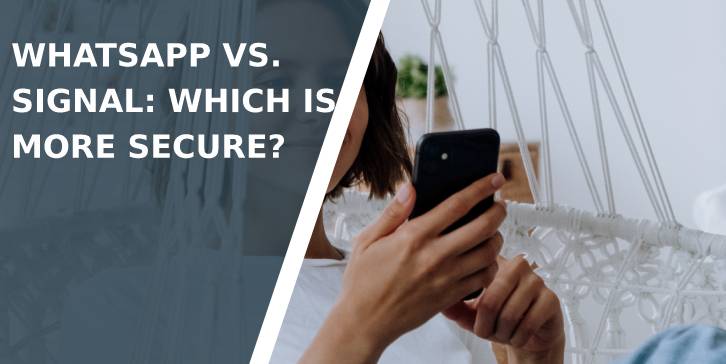As technology continues to advance, messaging apps have become a popular way for people to communicate. However, with the increasing concern for privacy and security, the need for secure messaging apps has become essential. Two of the most popular secure messaging apps are WhatsApp and Signal. In this article, we’ll compare WhatsApp vs. Signal and determine which one is more secure.
Encryption
Both WhatsApp and Signal use end-to-end encryption to ensure that messages are protected from prying eyes. End-to-end encryption means that only the sender and the recipient can read the messages, and no one else, including the app’s developers or government agencies, can intercept the messages. This makes it almost impossible for anyone to access the content of the messages.
WhatsApp uses the Signal Protocol, which is widely regarded as one of the most secure encryption protocols. The Signal Protocol uses a technique called perfect forward secrecy, which generates unique encryption keys for each message. This means that if one message is compromised, the other messages will remain secure.
Signal, on the other hand, was developed with security and privacy as its primary focus. Signal also uses the Signal Protocol, and it has been audited by independent security experts to ensure that it is secure. Signal also offers an additional layer of security called the Signal PIN. The Signal PIN allows users to secure their Signal account with a PIN, which provides an extra layer of security.
Verdict: Both WhatsApp and Signal use the same encryption protocol, but Signal has been developed with security and privacy as its primary focus, making it slightly more secure.
Data Collection and Sharing
WhatsApp collects some user data, such as phone numbers, device information, and user location. It also shares some data with its parent company, Facebook, including phone numbers, transaction data, and mobile device information. WhatsApp claims that it does not share the content of user messages with Facebook.
Signal, on the other hand, collects very minimal user data, only requiring a phone number to create an account. It also does not share any user data with third-party companies or advertisers.
Verdict: Signal collects very minimal user data and does not share any data with third-party companies or advertisers, making it more secure in terms of data collection and sharing.
Open-Source
The signal is an open-source app, meaning that its source code is freely available for anyone to inspect, modify, or distribute. This allows security experts to review the code and identify any vulnerabilities or weaknesses. Open-source software is generally considered more secure because it allows for greater transparency and accountability.
WhatsApp, on the other hand, is not open-source. This means that its source code is not available for public review, making it more difficult to identify potential vulnerabilities.
Verdict: Signal is open-source, which allows for greater transparency and accountability, making it more secure.
In conclusion, both WhatsApp and Signal are secure messaging apps that use end-to-end encryption to protect user messages. However, Signal has a slight advantage over WhatsApp when it comes to security. Signal collects minimal user data, does not share data with third-party companies or advertisers, and is an open-source app. These features make Signal more secure in terms of data collection and sharing and overall security. However, WhatsApp is still a very secure messaging app and maybe a better choice for users who value convenience and the app’s popularity. Ultimately, the choice between WhatsApp and Signal comes down to personal preference and priorities.

